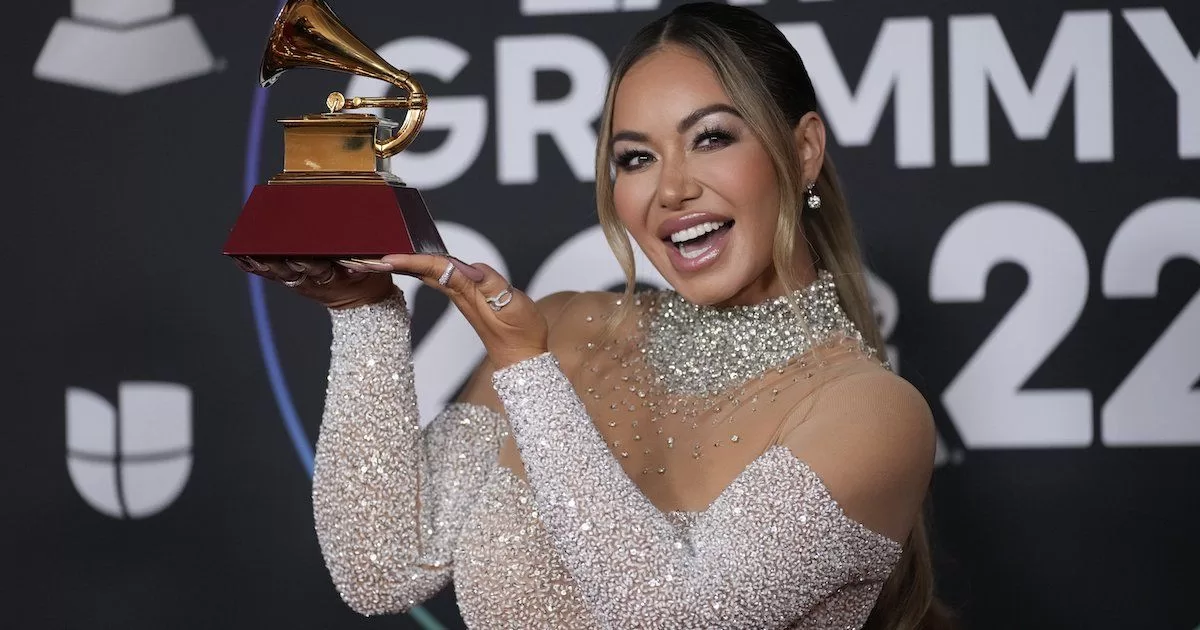In 1978, as Britain battled the infamous winter of discontenteight friends from Birmingham got together and formed a band, UB40. This area group Balsall Heath It was a perfect summary of the multicultural musical mix and they established themselves as a band of “jazz-dub-reggae”. But beyond demographics, they also represented the economic struggles of the time. Before the formation of the band, the eight were getting by in grueling factory jobs, where they were paid less than eight pounds a week in unemployment benefits.
In fact, the name of the group was taken from the Unemployment Benefit form 40 , an assistance card given to claimants for benefits. As young people they attended protests and marches against apartheidand attended the concerts of ‘rock against racism‘ to those who would make the headlines. From those humble roots, the band blossomed into the world’s best-selling reggae band, generating over 50 UK chart singles and selling more than 100 million records. Most impressively, throughout their rise to the top they have never hidden the political convictions that helped bring them together in the first place.
After 45 years, the band is still going strong and is back on tour this summer. We spoke with Robin Campbell founding member, singer and lyricist, and Matt Doylevocalist, on the band’s origins, political leanings and the importance of speaking…
Q: Guys, good afternoon! Your next tour takes you to Spain next month, what are you waiting for this time?
Robin Campbell : “Always is good. The Spanish public is great, they love reggae. They also love reggaeton, but they love reggae. We have always had great concerts in Spain, the reaction is always good. We like the party crowd and you know that the Spanish crowd likes to party, they like to sing and dance. It is party time!”
Q: After 45 years of making music, how do you decide the set list for the night? Is it what the band wants to play or what the audience will be receptive to?
RC : “It’s kind of a mix of both, you know. We always play what we think the audience wants to hear, the classic hits they expect. We like to include a few surprise hits that you might not have expected, but we always play the ones that we know you’ve come to hear like ‘Red, Red Wine’. We try to mix and keep as many people in the audience happy as possible. But no matter what you do, someone always shows up after the show and says : ‘You didn’t touch my favourite’, but we’d be on stage for two days if we all played!”
Q: Going back to the beginning, the roots of the band are very much in Birmingham. How important is the city to the success of UB40?
RC : “Well, we are a product of Birmingham. We are a product of where we grew up. We all came from Balsall Heath, it’s like the first suburb outside the city center and it had a large Jamaican population. We grew up with Jamaican music, from the very beginning. We couldn’t exist as a band making the music we do without growing up where we did. We are a product of our environment. And, of course, the racial mix within the original band was four blacks and four whites. That was a perfect reflection of where we came from. If you took eight kids off the street where we came from in the 1970s, they would be just like us.”
Q: The band was a product of the demography of the area, but also of the politics of the time. How did that influence the music you made together?
RC : “We were a gang of comrades before being a band, and we were politically active, we went to demonstrations. We continued to play ‘Rock Against Racism’ gigs, but before we played as a band, we went there as buddies. We were always active. We were always anti-apartheid. We used to go to London and demonstrate outside South Africa House . We were that we were that kind of kids. So when we started making our own material, we wanted to reflect the things we were thinking about, talking about, and angry about.”
Q: The landscape of the music industry has changed a lot in the following decades. Do you think there is still a political slant in popular music in the same way?
RC : “I think he will probably come back much stronger. It sort of disappeared, but I think everything is cyclical. Politics is cyclical, and the dire situations people find themselves in are cyclical. The way things are now with food banks, unemployment… I think things are just as bad now, or even worse, than they were in the 1970s. So I think there’s a consciousness again.
I think young people are starting to become politicized again. Like they used to be when I was a kid. I think it stopped for a few decades, or at least slowed down, but I think it’s coming back. Because that’s what happens when things go wrong, people start to wake up. Things have to get really bad before people start to get angry. Otherwise, people just put up with things. I think people start to get politicized and when things go really bad, it’s usually when you’re under the most right-wing governments out there.”
Q: UB40 used music as a communication tool, have social media changed the way younger generations express themselves?
Matt Doyle : “I would say that there are many good things and many bad things about social networks. In the past, anger was stored with ideas in the head like ‘what? Why does this happen?’ An artist would take those thoughts, read about what’s going on, and create something that other people can relate to. But now, you can go straight to your phone and put it on social media: ‘I hate what’s happening in this country because of this ‘.
And then it’s gone. It’s happening instead of people writing about these things, coming together and talking about these things. People used to meet in large rooms to discuss problems and find solutions. But now we just do a quick post on social media. We have taken out our anger and continue with the rest of our day. It may not necessarily come down to the music, which I think is pretty sad. I think a lot of people need to start using that anger and putting it into their art a little bit more.”
Q: Are artists still choosing to express themselves through music?
MD : “I think there are still a lot of people doing it, but maybe people just aren’t listening as much. Now sometimes you see people say they don’t want to hear about politics in music, but music has always been political. Like Robin said, it was gone for a few decades, but you can hear it coming back, even through the pop songs you hear on the radio. You definitely hear hints of that, but he’s a little more reserved.”
Q: The England soccer team has been praised for being quite vocal on important issues. Can sport help spread messages of equality?
RC : “I think it’s wonderful how certain players have the courage to express their opinions. But what happens to them on social networks is incredible. You have the ‘brave’ keyboard warriors yelling racist abuse at them, or homophobic abuse, or whatever they want to yell. I find it all a bit sad, but I think it’s wonderful that some of them want to stand up and be counted. People like Marcus Rashford, you know. What a man, what a man
Q: One last question. You are celebrating 45 years of UB40 with this tour; What is the key to your longevity?
RC : “I have no idea what the key is. If we had a formula, we would bottle it and sell it! I think the secret is to do what you love. It’s not to try to second guess your audience or even tailor what you’re doing for them. Every time we tried to do that, we made bad records. I think what you should do is what you love. And if you do what you love, and you’re a good band, they’ll stick with you. That has been the case every time. Every time we’ve just done what we want to do, that’s when the fans love what we’re doing. All you can do is make music for yourself, make music that you love and not what you think others will love. I think that’s how you get longevity.”
Tour dates (Spain)
The Spanish followers and faithful of B40 are in luck. The British group’s tour, which has just begun, will have several stops in our country.
July 26: Santander, Campa de la Magdalena
July 29: Calvià (Mallorca), Antiguo Aquapark
July 30: (3:00 p.m.): Fuengirola (Málaga), Sohail Castle
July 30: (10:00 p.m.): Fuengirola (Málaga), Manerostrum Castle Park
Ticketing
Tickets for the B40 concerts in Spain are on sale on the official websites of viagogo.com y tomaticket.es. The general price of the tickets for the performances of the group are around 60 eurosbut the value may increase based on location and visibility.



